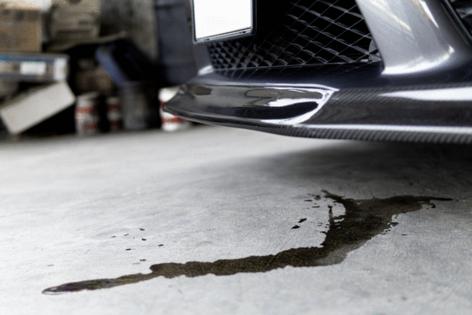Motormouth: How does stop-leak product work?
Published in Automotive News
Q: You recommended a stop-leak product to someone experiencing an oil leak in his Buick. I’m curious how this product works without gumming up the oil too much. If mixed with the oil, presumably it doesn’t just magically find its way to the leaking seal or gasket and close off the site of the leak. Is it making the oil just a little thicker and if so how is that not harder on the engine?
E.E., San Jose, California
A: The stuff actually does find the seal. Compounds in the product make the seal’s rubber a bit more pliable, which enhances sealing a bit. It doesn’t affect the oil. It won’t last forever, but it buys a little time. The seal must eventually be replaced
Q: I am someone who generally will keep a car for 10 years. I am 74 and own a 2018 Subaru Crosstrek with 36,200 miles on it. My parents lived into their 90s and I am in good health. My question is: When should I buy another car? Do I keep this one another three years and buy a new one at age 77? Any thoughts on "the final car"?
S.E., Liverpool, New York
A: We generally keep cars for about 20 years. In fact, we just sold a 2015 Lexus RX330 with 217,000 miles on the clock. We didn’t get much, but it was running fine despite the exterior appearance. I admit there are also younger vehicles in our stable. The moral of the story? Maintain your Subaru and it may last a lifetime.
Q: I have a Nissan Leaf 2022 SV with 62,000 miles. I bought a prepaid maintenance plan when I bought the car as I didn't know the maintenance requirements of an EV. Everything I have read suggested that these cars had no maintenance since there's no transmission, radiator, timing belts, smog check, etc. So, after I took my car in for its scheduled service, I talked to my relatives who have Teslas and battery coolant, and gear box oil changes are not on their on-screen maintenance tasks. What gives? Is the dealer taking me for a ride? Is the Nissan Leaf maintenance requirements different from other EVs?
D.H., Livermore, California
A: Your Leaf is not maintenance-free, but don’t let your dealer talk you into unnecessary service. Consult your owner’s manual and you may discover a few items such as tire rotations, cabin air filter replacement and brake fluid replacement. All the other stuff like reduction gear oil is suggested, but not mandatory. That said, if you paid for a full coverage maintenance program, why not let them do their suggested stuff at no charge?
Q: I am not a car guy, but I read your column every week and have found it to be a great source of information. I buy a new car every 7-10 years and always purchase an extended warranty. I would like your opinion on extended warranties and if you think they are a fair value.
S.Z., Chicago
A: According to Consumer Reports, “extended warranties are an investment in peace of mind that limits financial risk for a set period of time. But beware: Past CR member surveys showed that car owners typically paid more for the coverage than they got back in direct benefits. This isn’t surprising, because extended warranties make a lot of money for those who sell them.” You would be better off creating your own car care fund.
©2025 Tribune Content Agency, LLC.








Comments